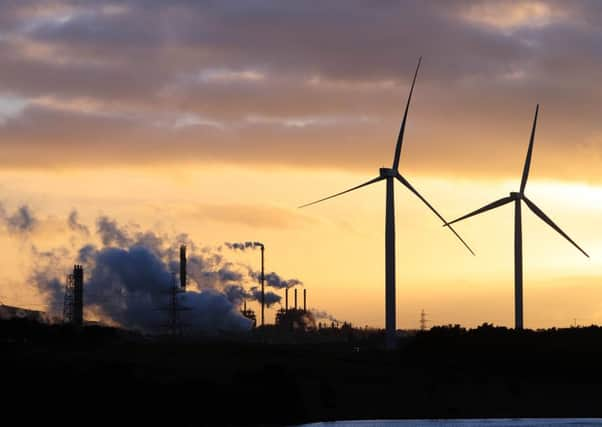Dr Sam Gardner: Zero carbon lifestyles can bring fairer future


‘The future rewards those that push on”, said Barack Obama back in 2011. By committing now to turn high ambition into low carbon action, Scotland can push on and secure the rewards of a zero carbon future: a healthier, fairer, more prosperous Scotland.
Seven years after the Climate Change Act was passed and just months after the historic climate deal in Paris, the newly elected Scottish Government now needs to seize the moment and put in place the policies to deliver that future. Policies that decarbonise how we heat our buildings and homes, policies which finally drive down transport emissions that remain stuck at the same level they were over 25 years ago and policies that ensure that no one should live in a cold home.
Advertisement
Hide AdAdvertisement
Hide AdI recall the very first climate action plan presented by the first minority SNP Government. In its June 2009 Climate Change Delivery Plan it said “transformational change is necessary. The Scottish Government is focussed on making it happen.” Seven years later we have seen the electricity sector undergo a huge transformation but this is only 21 per ent of our total energy consumption. The clarity of purpose that cuts across government and ensured renewable electricity output doubled since 2007 has been largely absent from the sectors responsible for the remaining 79% of our emissions. This is a massive missed opportunity, leaving the low carbon agenda incomplete and opening up only a fraction of the possible benefits.
The new SNP Government must now work with all parties to correct this imbalance and ensure that the same clarity of purpose is given to the key areas of heating, transport, energy efficiency and land use. The benefits of transformation across these sectors would be enjoyed across all of Scotland. The poor air quality of our towns and cities should improve along with the health of all those that move across them. Household energy bills could be cut, fuel poverty reduced, jobs created and new industries attracted to Scotland. These are just some of the rewards a low carbon future has to offer if the new Scottish Government commits to action today.
Although Scotland’s Climate Change Minister starts the new Parliamentary term with a very full in-tray, the to-do list cannot be the responsibility of just one Minister. Tackling climate change demands a whole government approach and the role of the Cabinet Sub-Committee on Climate Change is critical to ensuring this is achieved. Top of the list for the Cabinet Sub-Committee is the requirement to publish a new climate action plan. Unlike the previous plans, this one must not delay action into the future; it cannot rely on voluntary measures when all the evidence says intervention is required today. We know the scale of change needed: by 2025 all homes should achieve at least a C rating on their Energy Performance Certificate; according to the UK Committee on Climate Change new renewable heating technologies should become common place in our homes by 2030; and in the same year 65% of new car sales must be electric vehicles. Of course this plan needs to be fully funded, despite climate policies being the definition of preventative spend with multiple benefits on offer, no Scottish budget has yet come close to committing the level of investment required. .
The SNP’s manifesto committed to introducing a new Climate Change Bill to reset the 2020 ambition following the Paris Agreement. The Bill will provide a welcome focus on the importance of tackling climate change and is an opportunity for all parties to pursue new low carbon policies. However, we should remember that it was the SNP’s first Climate Change Delivery Plan in 2009 that said very clearly that “legislation alone won’t deliver the targets”. If the new Climate Bill is to take us forward it’s critical that it not only secures the same unanimous political support that the 2009 Climate Change Act enjoyed but that it also doesn’t divert attention away from the pressing need for action. A failure to take sufficient steps to cut emissions has meant that Scotland has overshot its carbon budget by 8 per cent. More than anything the message out of Paris was that the window of opportunity to prevent dangerous climate change is closing very fast and we all must redouble our efforts now if we’re to secure the rewards of a zero carbon future.
• Dr Sam Gardner is head of policy at WWF Scotland